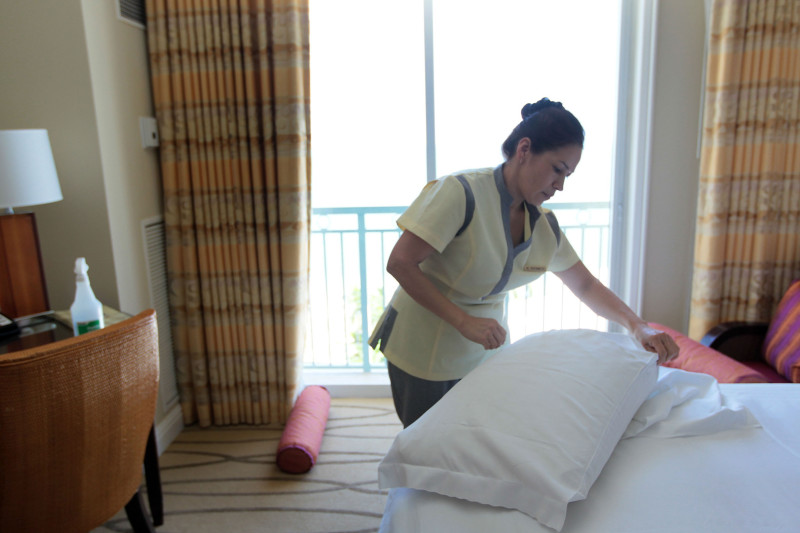"There are a lot of products that aren't labeled properly ... it's very hard to find the answers easily," she said, noting that many products simply list vague ingredients like "fragrance" that don't actually inform consumers.
"I think requiring companies to label ingredients is a very good first step that motivates them to be more transparent," she said. "If they have to be transparent, they may be compelled to use ingredients that may be safer, that aren't toxic."
Assemblyman Reginald Jones-Sawyer Sr. (D-Los Angeles), who is authoring the bill, noted in a written statement that low-income people who work as janitors and house cleaners -- predominately immigrants and women of color -- tend to have the most exposure to these chemicals. Children are also at high risk: Last year, the state health department issued a warning about the links between asthma and cleaning products, and created a program to help schools create safe cleaning programs.
Environmental health groups are backing the bill, including the Breast Cancer Fund and the Environmental Working Group.
Renée Sharp, director of toxics research at EWG, said it's not just kids and people who clean for a living who should worry.
"Ordinary people in office settings can be exposed and suffer adverse health effects," she said. "It's general consumers, moms and dads, kids living in homes -- we are all exposed every single day and it's difficult to know what we are being exposed to."
She, like Holmgren, called labeling a good first step, saying advocates ultimately want to see federal reform to require safer products.
"In the meantime, unfortunately, it's really up to consumers to make the choices themselves, and to protect their own health," Sharp said. "How do you do that if you don't have simple information of what's in something on the label?"
California is also in the process of implementing a broader law that aims to push manufacturers to remove the most toxic chemicals from consumer products.

